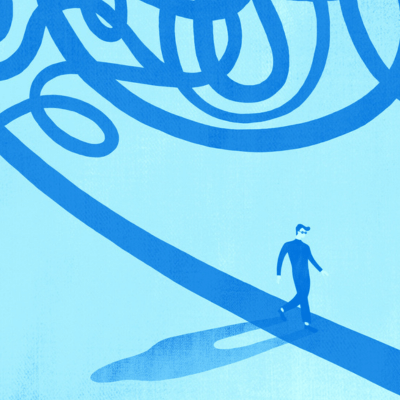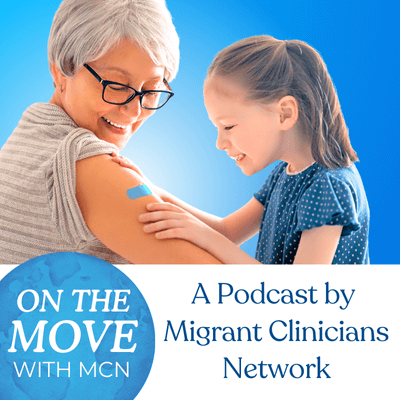Holiday Survival Guide: How to Respond to Illness, Loneliness, Division, & Grief

[Editor’s Note: Every month, MCN’s Director of Witness to Witness, Kaethe Weingarten, PhD, shares stories, resources, and helpful tips to support health care workers during these ongoing unprecedented times. Dr. Weingarten also offers a twice-monthly newsletter, filled with resources, recent articles, and her news and views. Sign up for the newsletter and grab bilingual resources on the Witness to Witness webpage.]
Thanksgiving has come and gone, and across the US, people had very different holiday experiences. Some had a lovely, large dinner with relatives and friends; others' dinners were disrupted by arguments or illness. Some reframed Thanksgiving, instead working to bust Thanksgiving myths with #Thankstaking, highlighting the true origins of the holiday. Others, like newly arrived immigrants, didn't celebrate at all, being unfamiliar with the customs. Regardless of how one did or did not celebrate, Thanksgiving is the kickoff in the US to the holiday season, and a reminder to begin thinking through how you want to celebrate the upcoming holidays, particularly with regards to illness, loneliness, divisions, and grief. Even those who had an easy and joyful Thanksgiving may benefit from preparation -- and gain some sympathy for those who are less fortunate.

The Triple Threat of Illnesses this Winter Warrants Pre-Holiday Decisions on Comfort Levels
Many had hoped that this holiday season would be free of illness worries. Sadly, some of the most vulnerable are at elevated risk this season, particularly elders from COVID and children from RSV. The seasonal flu can impact a person of any age. To prepare, many are planning around the most vulnerable people who will be in attendance during the holidays, and thinking through their comfort levels with the holiday plans they are making. For instance, if a person was planning to go to her brother’s house, but that family doesn’t believe in taking COVID precautions and she does, she faces a quandary, but she still may wish to attend. If she has two young children and will be bringing her mother-in-law, who is a frail elder, her tolerance level may change. No one can tell us what our comfort level should be, but most people would agree that it will serve our families better if we are clear about our own comfort level and we make plans accordingly. Then, if people do get sick, at least we will know we thought our choices through carefully.
Since outcomes with regard to illness are often not what we wanted, it’s helpful to feel good about the thought process and action steps we took. That has been the experience of many people this year. One person decided to go unmasked to the cinema, and changed seats when the person next to them began coughing. He contracted COVID. In hindsight, having a mild case and no lingering symptoms, he said it was worth taking the risk he did, having been cooped up for so long. Contrast that with someone who goes to the cinema and stays in their seat when the person coughs, and then gets COVID. That person, who also has a mild case and no lingering symptoms, may well kick themselves for not having worn a mask or changing seats. The difference was not the illness, but the action the person took when confronted with an illness, and that changed each individual’s reaction to becoming ill.
With family gatherings, of course, these kinds of considerations are much more challenging because they typically involve many people. Still, it is helpful to consider what the group gathering is willing and able to do. If you are going to be spending an entire day with each other, a rapid test will only provide (limited) assurance for three to four hours. So what to do? Each family will handle this differently. My point is that, given that outcomes are what we cannot control, being resolved about the process that precedes an outcome (usually) removes a layer of distress in the future.

Thinking Through Your Intentions for the Coming Holidays, Especially Regarding Loneliness
Leaving precautions aside, holidays almost always stir up feelings from the past: they can be positive, negative, or a hard-to-sort-out jumble. Many people think of current holidays as opportunities to repair the past. Sometimes this works well and sometimes it flops miserably. Another frame, if repeating the past isn’t the option you intend to do, is thinking through what your intention is for the holiday and plan with others or just yourself to realize the version of the holiday that suits you (and your family) in the present. My holiday blog from 2021 has a short thought exercise to help with this.
Thinking about holidays in the present, not in the past, allows us to anticipate how the holiday may unfold. Sometimes we are overwhelmed by family, social circle, and community holiday events. It feels like too much of a good thing. Other people find holidays difficult because that is when they feel most lonely. If you are in the latter position, it may be helpful to plan carefully. But first, you may find it helpful to learn that 22% of adults in the US say they “often or always feel lonely, feel that they lack companionship, feel left out, or feel isolated from others.” Or, a 2018 survey by the AARP Foundation found that more than one-third (35 percent) of adults age 45 and older say they are lonely. In addition to loneliness feeling crummy emotionally, there are worse physical and mental health outcomes for lonely individuals. Interrupting loneliness, even for a short period, is well worth doing.
Certain groups are more at risk of loneliness than others – including immigrants, and lesbian, gay, and bisexual populations. Latinx immigrants have been found to have fewer social ties and less social integration, compared to US-born Latinxs. The CDC leaned on one report that said that “first-generation immigrants experience stressors that can increase their social isolation, such as language barriers, differences in community, family dynamics, and new relationships that lack depth or history, the report states. Similarly, gay, lesbian, and bisexual populations tend to have more loneliness than their heterosexual peers because of stigma, discrimination, and barriers to care.”
Another group who may feel alone during the holidays this year are those suffering from long COVID. Some sufferers will just feel too tired to muster the energy to participate in holiday festivities. It is now well established that COVID infections – among other organ systems it can impact-- can affect the brain, causing any number of these conditions: depression, strokes, anxiety, memory disorders, and sensory disorders. Those conditions usually co-occur with the experience of fatigue and brain fog for people with long COVID. While the science of this is established, the remedies for these medical problems are not. Nor is every health care system equipped to help individuals with long COVID. Lacking a strong health care team can make anyone feel acutely on their own. Some health care systems offer excellent care but patients struggle to access it due to long waits.
For people who are going to be alone, planning to make it a special day or planning to ignore it altogether are two good options. For the former, an approach may be to think of your favorite things: for example, stock up on your favorite foods. Or, plan on binge-watching your favorite movies. Gather the phone numbers of friends and family you would like to be in touch with on the holiday and call them. Find a patch of nature and enjoy it. Look up local resources in your community that are open and available for the holidays. Finally, even though you may feel you are the needy one, you can reach out to someone else in need and feel the sense of well-being that comes from generosity of spirit.
If you know someone who is alone, holidays are a good time to reach out to them. You may not be able to or want to invite them to be with you for your holiday celebration, but you can still send a card, make a phone call or text, or drop off or send flowers, a plant, or other token that will let the person know you are thinking of them. For those of us who can be generous, finding ways to share is a win/win. We feel good while doing good.
Divisions Within Families
What would a blog about the holidays be in 2022 if it didn’t include a mention of politics and polarization? Some polls show that about 40% of people who are politically partisan think that people on the “other side” are evil. You probably don’t want these sentiments colliding at your holiday celebration. It makes sense to anticipate this and if you doubt a political conversation will be respectful, then it makes sense to set some boundaries ahead of time. This can be easily done in a group text or email, for instance: “Let’s not discuss politics this year. I think we all had quite enough of that last time we were together.”

Grief and the Holidays
For many people in the US, children and adults alike, this holiday will be one in which remembrance of those who have died will inevitably be part of the occasion. Welcoming grief amidst celebration doesn’t have to bring the mood down for the entire gathering, but rather it can sharpen gratitude for those present. It is also a gift to share and support the feeling state of those who are invited to share the holiday. If you are the person who is grieving this holiday season, many local and online grief support resources exist.
The holidays are especially hard for children in mourning. In 2008, the Highmark Caring Place created a global holiday on the third Thursday of November, Children’s Grief Awareness Day, in recognition that the holiday season is often a tough time for grieving children. Their website has many resources if you have a grieving child in your family.
It may seem off to end a holiday blog on the note of grief, but I do it because it isn’t odd to me. I think just the opposite. For me, being there for and with a person who is in pain over a loss is the essence of the holiday season’s meaning. I developed the Witnessing Model decades ago precisely to recognize the opportunities there are for compassionate action given the universal experience of witnessing. That is, attending to our own and others’ grief can be uplifting if we open our hearts and consider that opening the heart to the pain of others, like exercising any muscle, leaves us stronger and more resilient, not depleted and spent. In fact, it may be very much in alignment with getting into the holiday spirit as a way of moderating the stressors of the preceding months. Opening our hearts and getting into a festive mood may be the very attitudes that create individual, family, and community resilience this year.
Have a resilient holiday season!
- Log in to post comments






